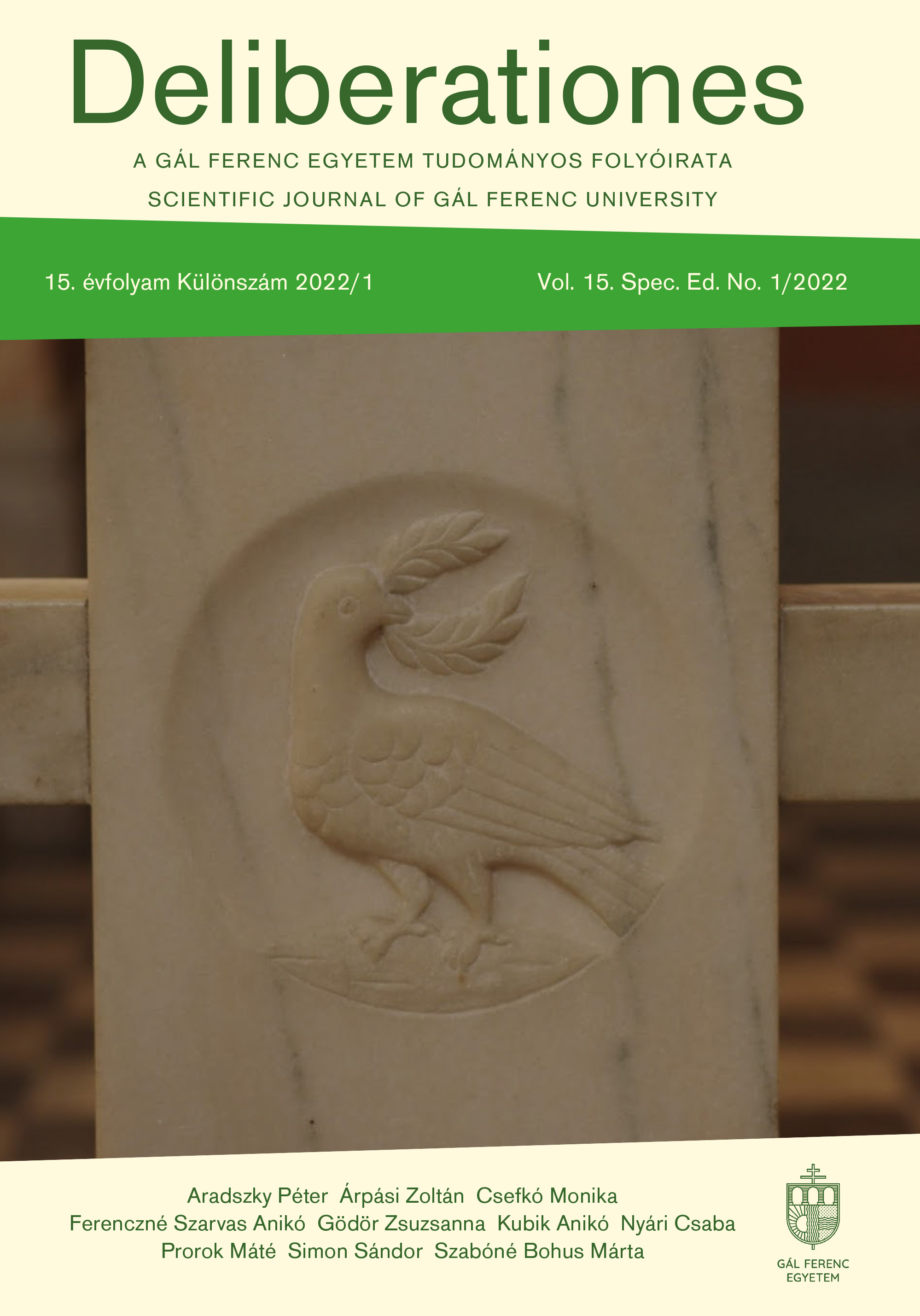Abstract
While the structural and functional characteristics of an organisation are important determinants of its communication capabilities, the quality of communication is also a major determinant of the way in which it functions.
Dysfunctional functioning of the communication network of an organisation causes tension, which in the long run leads to serious problems in other aspects of the organisation's functioning, which greatly reduces efficiency.
By briefly presenting the organisational diagnosis of two organisations, this paper attempts to establish that inadequate communication is of primary importance as one of the core causes behind the 'symptomatic' problems of these organisations.
The diagnoses were made by the author between 2022-2023.
References
Block, P. (2005). Makulátlan tanácsadás - Útmutató a szervezeti változásokhoz tanácsadóknak. HVG Kiadói Rt.
Boncz, I. (2015). Kutatásmódszertani alapismeretek. https://www.etk.pte.hu/ protected/OktatasiAnyagok/%21Palyazati/sport/Kutatasmodszertan_e.pd (Letöltés: 2019. 10 13)
Cole, M., & Cole, S. R. (2003). Fejlődéslélektan. Osiris.
Csanádi, P., Kalmár, P., Németh, G., & Torma, K. (2010). Szervezetfejlesztési tanácsadás. In J. Poór, P. Csanádi, G. Erdőhegyi, G. Kornai, E. Noszkay, & G. Németh, (Eds.), Menedzsment-tanácsadási kézikönyv (pp. 264-289). Akadémia Kiadó Zrt.
French, W.E., & Bell, C. H. Jr. (Eds.). (1993). A szervezetfejlesztés meghatározása. In: Organization Development. Behaviourial Science Interventions for Organisation Improvement. 4th ed (1-6). Prentice Hall International Inc.
Horváth, D., & Mitey, A. (2015). Alternatív kvalitatív kutatási kézikönyv. Alinea Kiadó.
Klein, S. (2012). Vezetés- és szervezetpszichológia. Edge 2000 Kft.
Klein, B., & Klein, S. (2012). A szervezet lelke. Edge 2000 Kft.
Kovács, I. É.(2007). Az egy - és a kétirányú kommunikáció. In A. Mészáros (Ed.), Kommunikáció és konfliktusok kezelése a munkahelyen (71-82). Elte Eötvös Kiadó.
Mayer, P. (2011). Turizmus kutatások módszertana. Pécsi Tudományegyetem, Kempelen Farkas Hallgatói Információs Központ. https://www.tankonyvtar.hu /hu/tartalom/ tamop425/0051_Turizmus_kutatasok_modszertana/ch03s03.html (Letöltés:2020.10.15)
Molnár, D. (2010). Empirikus kutatási módszerek a szervezetfejlesztésben. Humán Innovációs Szemle, 1(1–2), 61–72. http://humanexchange.hu/site/uploads/file/61-72_md.pdf
Seidman, I. (2002). Az interjú, mint kvalitatív kutatási módszer. Műszaki Könyvkiadó.
